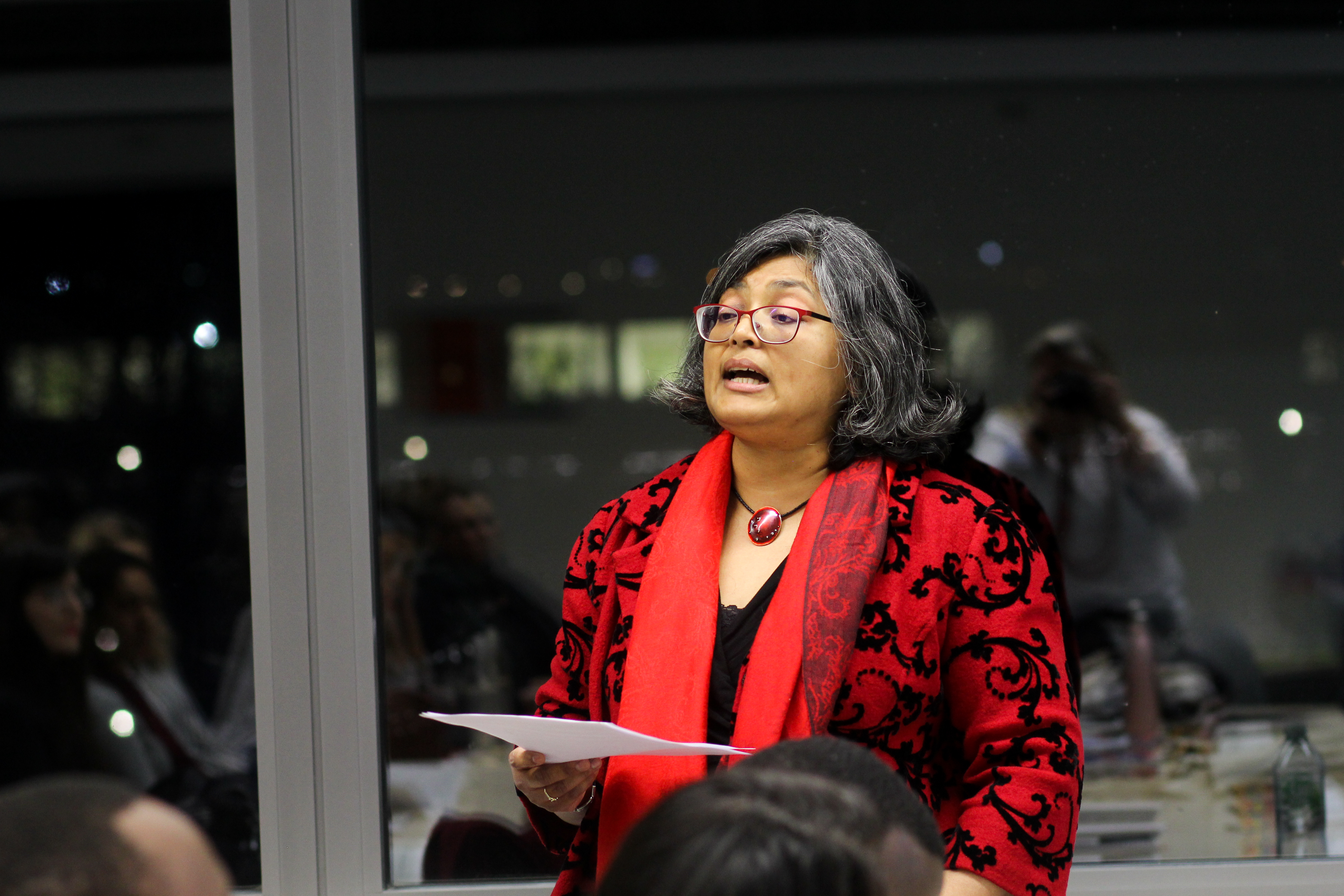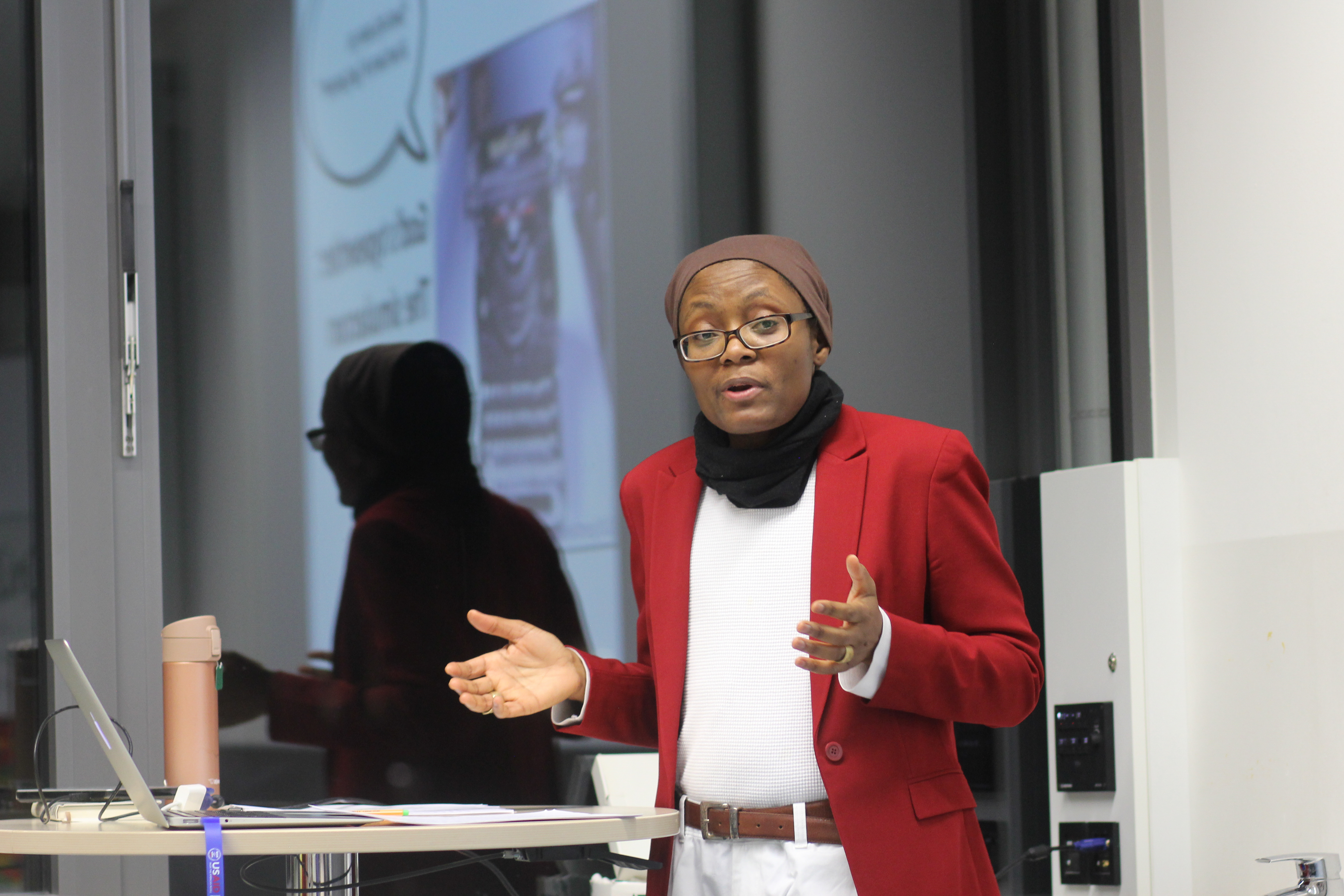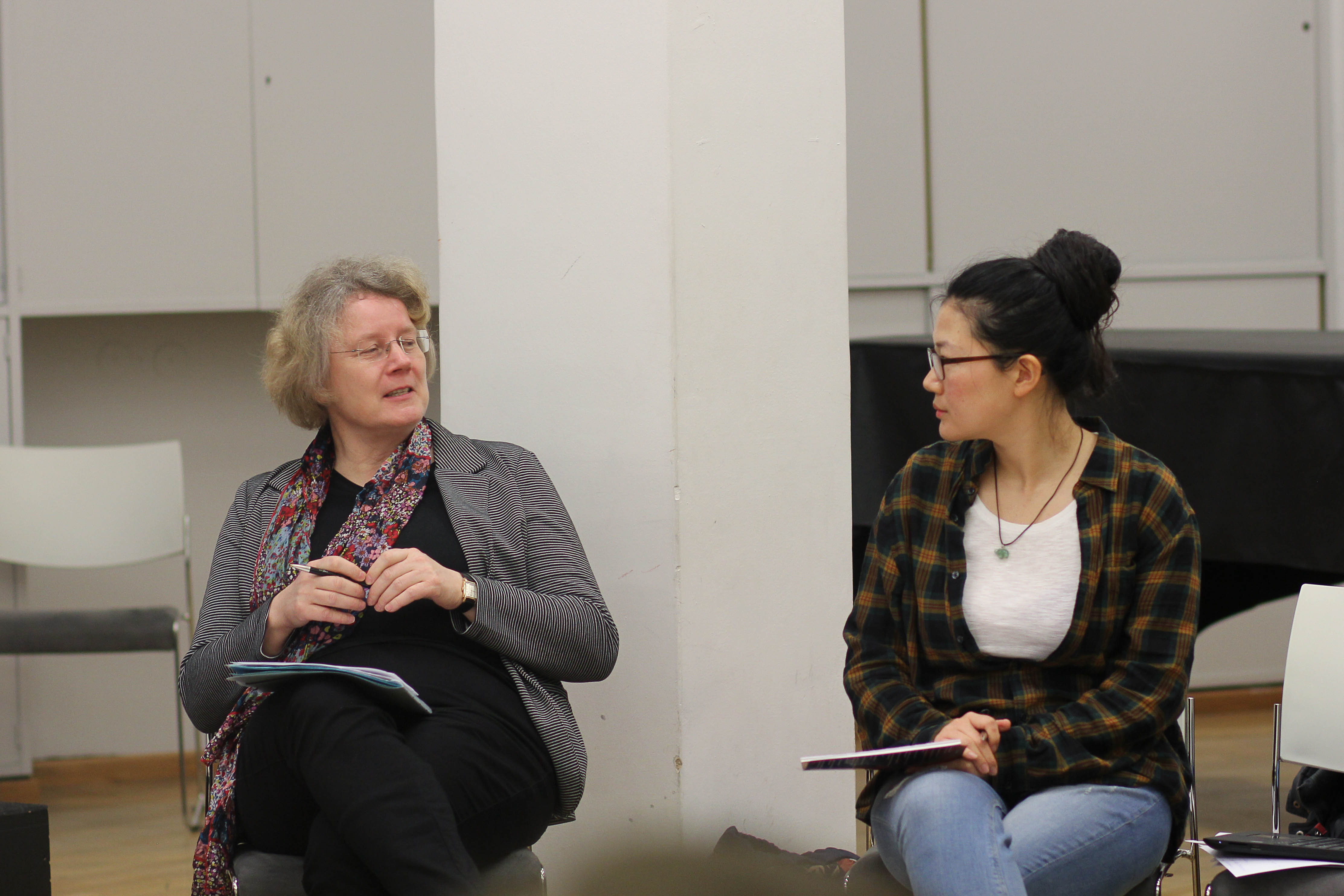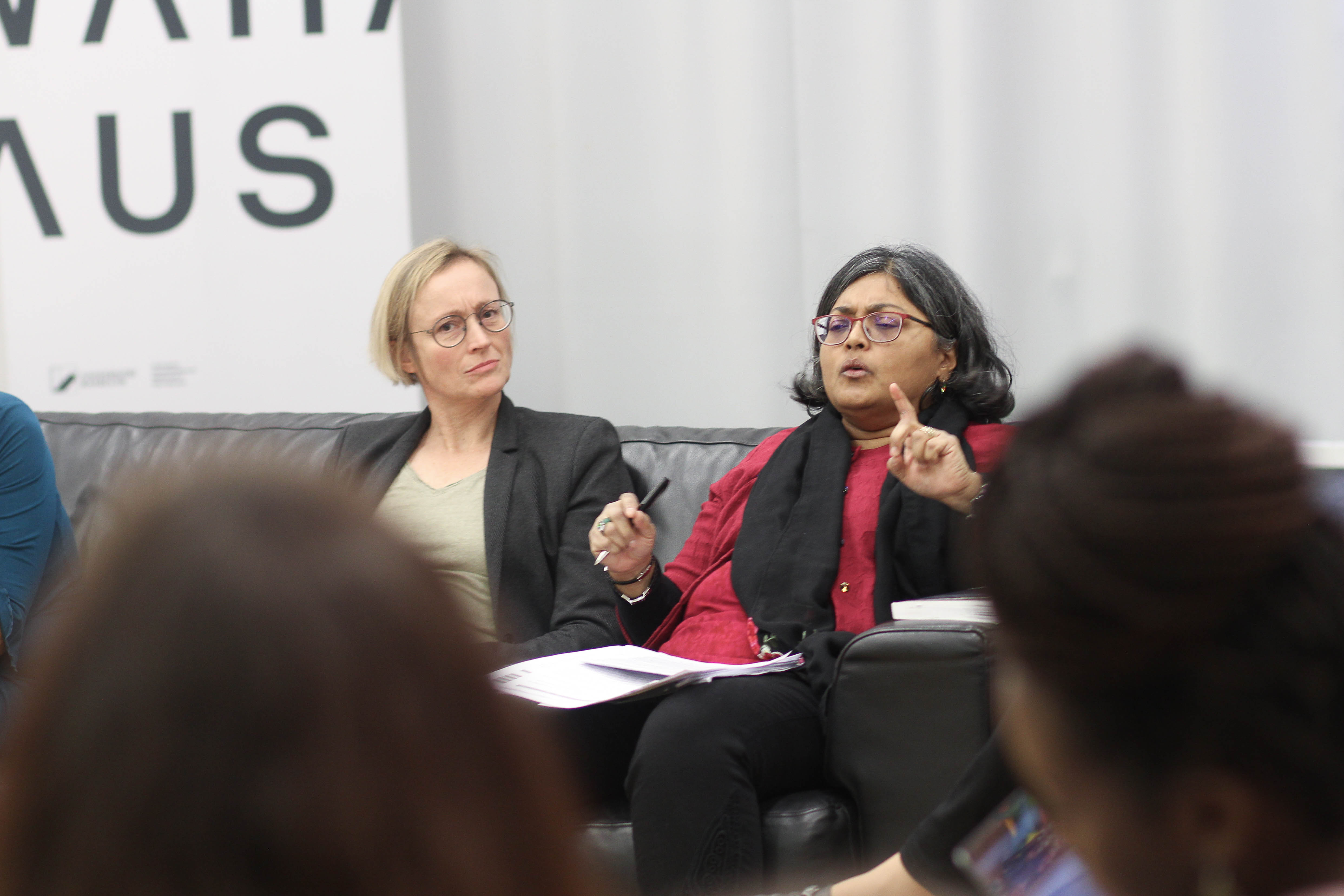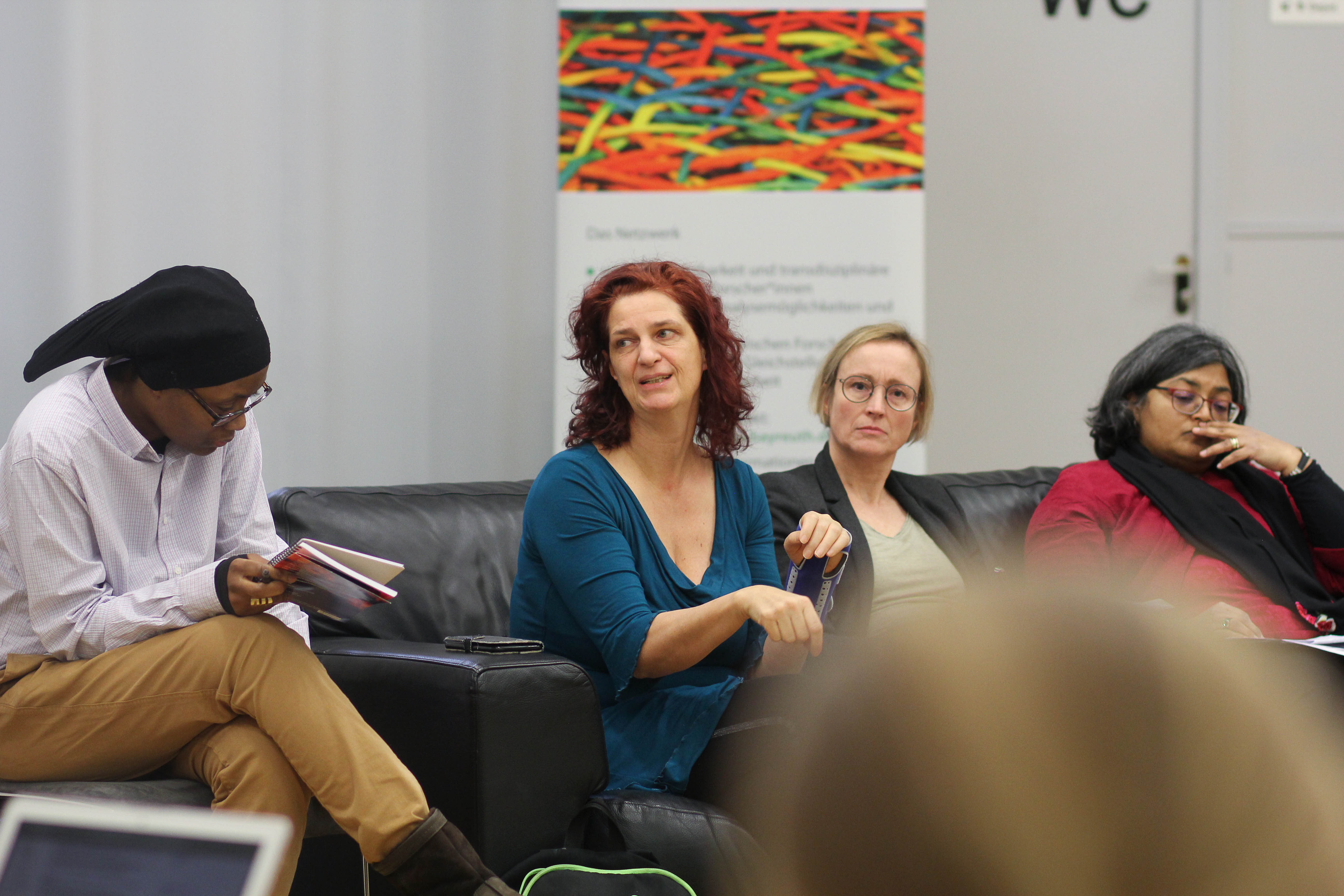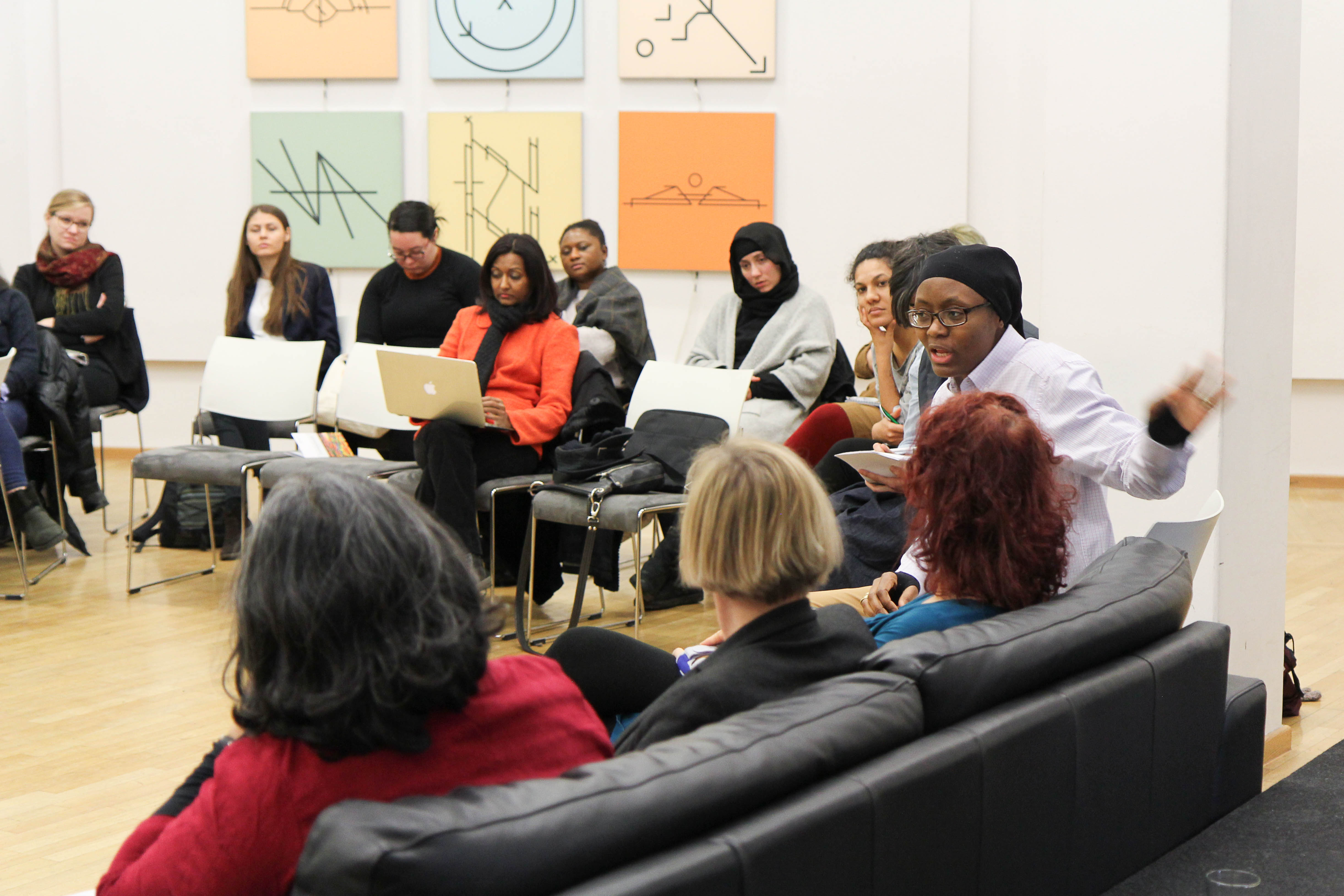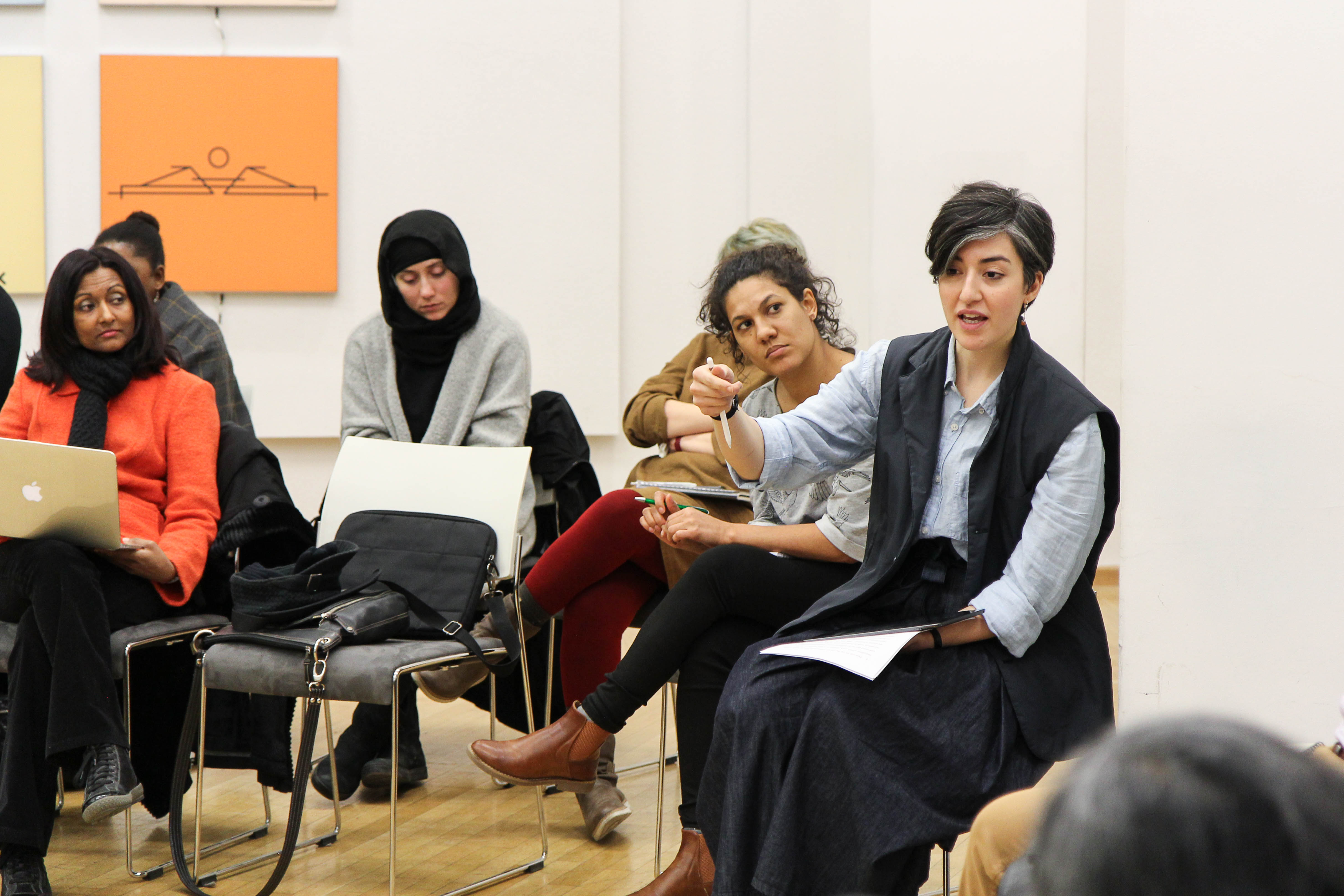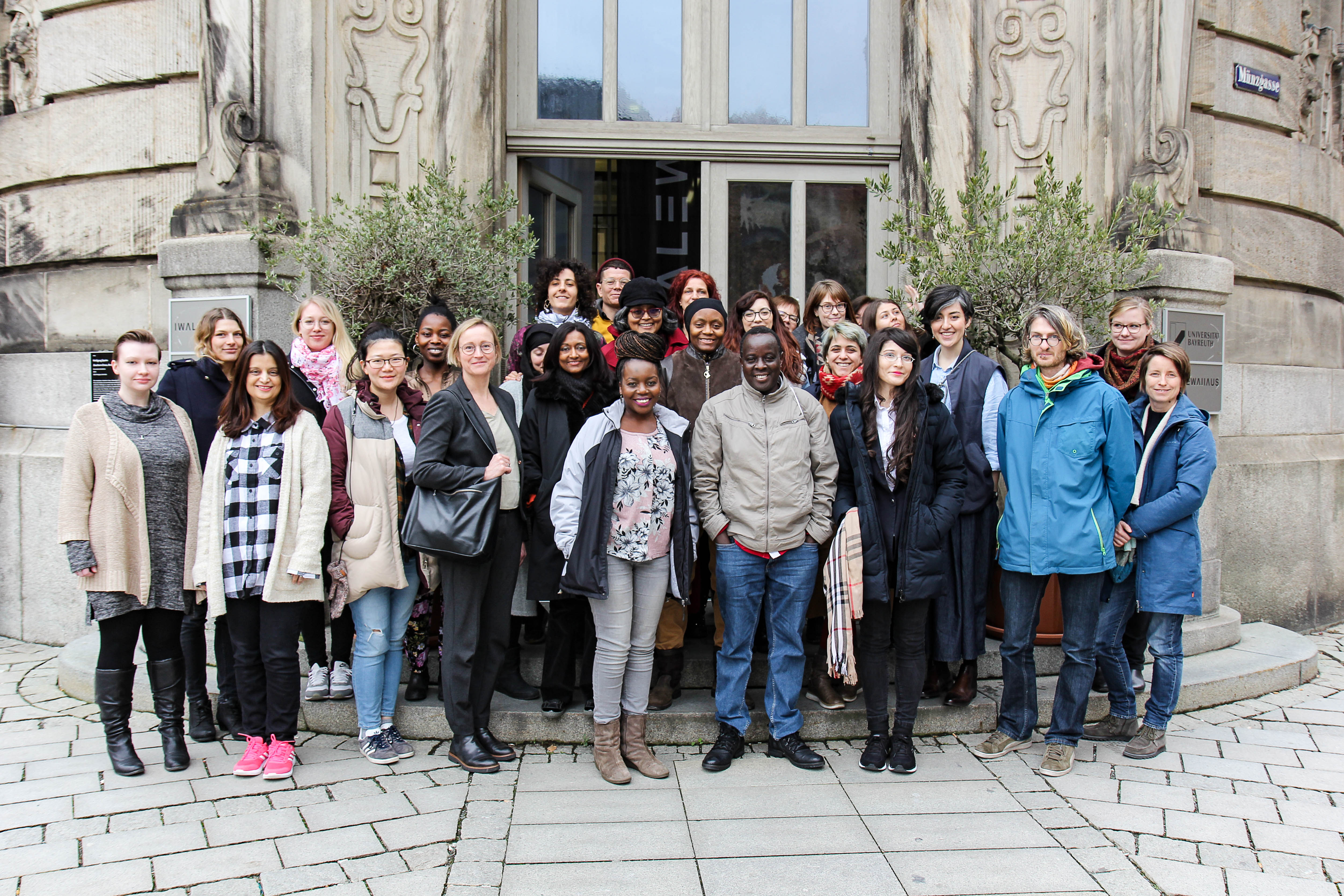News
Symposium Intersectionality
19.02.2020
Since October 2019, the topic of intersectionality has successfully been added to the studies’ programme of the University of Bayreuth. In the beginning of February, a symposium on the topic brought more scholars and students together for a valuable exchange.
The Africa Multiple Cluster and the GeQuInDi network at the University of Bayreuth invited students and scholars to attend a three-day symposium on “Intersectionality. Theory, Approach, Activism” from 06 through 08 February 2020. This academic event focused on intersectionality as a concept and an analytical approach examining how intersectionality influences political activism. During the course of the event, participants experienced lectures on the topic as well as critical debates that addressed the poetics, ethics and politics of intersectionality. “With this symposium, we aimed to frame the discipline of Intersectionality Studies and show its deep connections to the history of activism. We wanted to create a platform for a fruitful discourse and make it as transdisciplinary as possible,” the symposium’s organizer Prof. Dr. Susan Arndt explains.
In October 2019, Arndt had founded a new complementary studies programme at the University of Bayreuth titled “Intersektionalitätsstudien und Diversity-Kompetenzen” Arndt says: “The symposium was a perfect way to end the first semester of our new programme – we were able to offer students and scholars a valuable array of different opinions and views on intersectionality. They were able to participate in the debate with experienced scholars of the topic.”
Keynote by S.N. Nyeck
The symposium started on Thursday evening with a keynote by Dr. S. N. Nyeck who is currently residing in Bayreuth as a fellow of the Bayreuth Academy of Advanced African Studies. Dr. Nyeck built her talk titled “Intersectionality, Intercontextuality and No-thing” around the film Proteus. The movie from 2003 is set in 18th-century South Africa and dramatizes the true story of Claas Blank and Rijkhaart Jacobsz who had an interracial homosexual relationship and were later executed. Taking the movie as a starting point, Nyeck scrutinized intersectionality and examined queerness in the colonial context. „Implied in the very idea of intersectionality is the assumption that something must always intersect at a given intersectional construct. Yet, axiomatically and empirically, an intersection may yield nothing and is said to be ‘empty’ even if the intersecting sets are not,” Nyeck points out. The talk reflected on this possible outcome and its implications on presumed trajectories of gender and sexual identity claims and presentations in Africa. It developed an ethics of being, belonging, and becoming that rests on forms of agencies proper to “nego-feminism”, and on an epistemology of strategic protests that remains suspicious of all spectacular modes of identity citation in Africa irrespective of their or colonial or postcolonial origins.
“The future of Intersectionality”
The second day of the symposium started with a panel discussion focussing on the future of Intersectionality. Dr. S. N. Nyeck, Prof. Dr. Susan Arndt, Prof. Dr. Antje Kley and Prof. Dr. Annette Keilhauer from the Friedrich-Alexander-University in Erlangen, and Dr. Christine Vogt-William, the Africa Multiple Cluster of Excellence’s Director of the Gender & Diversity Office, all contributed to the debate. The discussion’s topics ranged from intersectionality in Literary Studies to the usage of the term “race” to the relevance of the study of intersectionality itself.
Panels on Friday
Afterwards two panels discussed Intersectionality from different angles. The first brought together for papers about ‘Activism and Resistance’, chaired by Christine Vogt-Williams. Here Ramola Ramtohul from the University of Mauritius discussed “Intersectionality and Women’s intersectional Activism in Mauritius” looking at i.a. at parliamental representation of women in Mauritius. Rejoice Chipuriro of the University of Johannesburg followed on about “Endangered political voice. Reflection on activism in Zimbabwe’s ‘new dispensation’”. In here paper she focused on intersectional discrimination to control female voices in Zimbabwe. Antje Daniel from the University of Vienna brought another perspectice to the panel talking about “Intersectionality and protest: New pathways in social movement studies? Intersectional lens on student protests in South Africa”. Under the study of social movements, she looked at intersectionality in the case of student protest.
The second panel of the day discussed Intersectional Decolonisation and was chaired by Antje Kley. Here Tania Mancheno of the Universität Hamburg talked about “Notes on a Decolonial Approach to Manhood”. By looking at colonial statues and their framing she could show how intersectional discrimination lived on and kept influence. Peter Simatei from the Moi University, Eldoret, presented a paper on “Diaspora’s Intersectionalities”. Looked at discussions of gender and belonging the special role of Indian female diaspora was shown. The panel closed Xin Li from the Universität Bayreuth with “Post-colonial and Post-human Intersectionality – Towards a Trans*sectional Paradigm.” With a theoretical approach the reaching of Intersectionality was discussed and new possible pathways presented.
The day was closed with music from the Merheba Duo, having Mahan Mirarab on guitar and Uygur Vural on cello, presented by Shirin Assa.
Keynote by B. Camminga
The last day of the symposium started with a keynote by Dr. B. Camminga from Wits University. Dr. Camminga talked about “Intersectional Silences: A Reading of Parliamentary Debates not) about Transgender Asylum Seekers in South Africa.” They started from the specific rights that are granted to transgender persons in South Africa and that should be granted to transgender asylum seekers, too, but as they stressed, transgender asylum seekers are both, transgender and asylum seekers and by this face intersectional discrimination. In bringing together xenophobic and sexist biases these perceived illegal immigrants are left in an either-or-position. This was shown by looking at state-NGO-LGBT-dynamics and the tensions between constitution and realities. As B. Camminga showed all this is happening in a field of transnational influences setting frames and leaving transgender asylum seekers between transformativity and transnormativity.
Panels on Saturdays
Afterwards, another three panels discussed Intersectionality from various different angles. The first discussed Trans*Intersectionality, a panel chaired by Annette Keilhauer. Here Tomás Jules Fuetty from the University of Kiel introduced “Trans* and Critical Diversity” by looking at silencing, violence and death making. A focus were questions of sex work, pathology and criminalization. Afterwards, Mario Faust-Scalisi from the University of Bayreuth talked about “Sexuality minority rights and Chilean comic cultures”. Following Chilean fanzines and the feminist artists Katherine Supnem the role of comics to tackle intersectional discriminations were discussed. The panel was closed with the paper from Pelagia Goulimari from Oxford University “’Where are you (really) from?” Transgender ethics, ethics of unknowing, and transformative adoption in Jackie Kay’s Trumpet and Toni Morrison’s Jazz”. By looking at these two works and following the question ‘where are you really from she worked out transgender ethics and frames of transformation.
The second panel brought together papers about Transgressing Knowledge and was chaired by Nadine Hufnagel. First Jody Metcalfe from Universität Bayreuth discussed “Mixed Race Adoption in South Africa and Germany”. By looking at the question what mixed race in South Africa meant and till means the turns and consistencies of intersectional discriminations were brought to discussion. Dilan Zoe Smida from the University of Bayreuth introduced her thoughts to “Knowledge, Emotion, Critical feminism, Mad studies” and allowed for a fruitful discussion about the opportunities and reach of mad studies as an enrichment for intersectional studies. Lastly, Numaira Khan from the University of Bayreuth presented a paper about “Exclusion and Subordination of Hindu Widows in Bapsi Sidhwa’s novel: Water”. Linking her topic to the novel Water Numaira Khan could prove the worth of intersectionality as a heuristic tool to examine power relations.
The symposium’s last panel talked about Intersectional Feminism and was chaired by Mario Faust-Scalisi. Here, Tomupeishe Maphosa from Universität Bayreuth introduced a paper on “No Home for A Girl in Return”. Looking at trans-cultural and trans-national adaptions questions of home, belonging and discrimination were discussed and linked to empiricism. Stephen Mutie from Kenyatta University had a paper on “African Intersectional Feminism(s) and the Power of the Margins: Perspectives from Wangari Maathai”. Focusing on Wangari Maathai the question which Feminisms are there in Africa was brought to discussion, including the question if feminism is the right word to discuss these. Finally, Nelly Fais-Sad from the Goethe-Universität Frankfurt am Main talked about “Lolita – The Myth of the Child-Woman in Visual Media”. With a visual-media perspective intersectional discrimination linked to the picture and myth of Lolita was discussed.
The symposium ended with an outlook where Intersectional Studies are heading – as theory, approach but also as activism.


